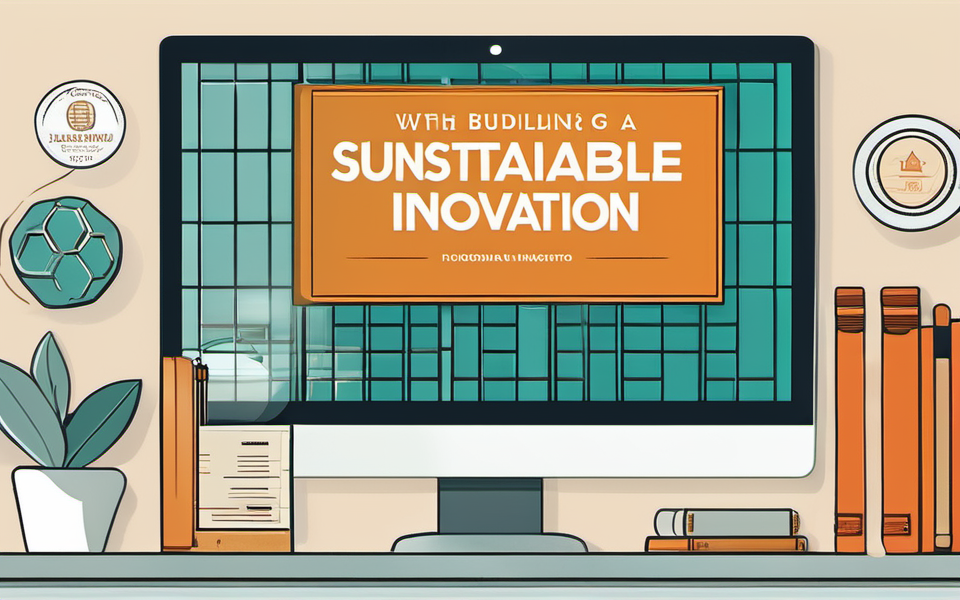Imagine a world where every product you buy, every service you use, leaves a positive footprint on the planet. No more plastic waste, no more toxic pollution, no more unsustainable practices. This future might seem like a utopian dream, but it’s closer than you think. By harnessing the power of market innovation and intelligent regulation, we can forge a sustainable future where profit and purpose go hand-in-hand.
The Power of Market Innovation: A Force for Change
The market is a powerful engine for change. When businesses see an opportunity, they innovate. When consumers demand sustainable products and services, businesses rise to the challenge. We see this in the surge of eco-friendly products, renewable energy companies, and circular economy initiatives.
Empowering Sustainable Businesses:
Imagine a world where investing in sustainability is not just a responsible choice, but also a lucrative one. This is the vision of sustainable investing, where investors prioritize companies committed to environmental and social responsibility. Green bonds and ESG investing are already making waves, diverting capital towards solutions that benefit both profits and the planet.
Innovating for Sustainability:
From biodegradable packaging to renewable energy sources, companies are finding innovative solutions to environmental challenges. These innovations not only reduce environmental impact but also open up new markets, creating opportunities for green jobs and economic growth. Circular economy models, where materials are reused and recycled, are changing the way we think about consumption, making sustainability profitable.
Regulation: A Necessary Catalyst for Change
While market innovation is crucial, regulations provide the framework for a sustainable future. They establish guidelines, incentivize responsible behavior, and set clear expectations for businesses. Environmental regulations can help to limit pollution, protect endangered species, and promote resource conservation.
Regulations that Promote Sustainable Practices:
Regulations play a critical role in ensuring that businesses take responsibility for their environmental and social impact. For example, carbon pricing puts a cost on greenhouse gas emissions, incentivizing companies to reduce their environmental footprint. Sustainable building standards encourage construction projects to incorporate energy efficiency and resource conservation.
Finding the Balance: Regulation and Market Innovation:
Regulation should not stifle innovation, but rather create a level playing field where businesses can thrive while prioritizing sustainability. Government incentives and tax breaks can encourage investments in clean technology, renewable energy, and sustainable practices. Regulations should be designed to foster innovation, rather than stifle it.
Building a Collaborative Future:
Creating a truly sustainable future requires a collaborative effort between governments, businesses, and consumers. Governments can create policies that support innovation and sustainable development. Businesses can embrace environmental responsibility and prioritize sustainable practices. Consumers can choose to support companies committed to making a positive impact on the world.
The Role of Consumers in the Sustainability Equation:
The choices we make as consumers have a powerful influence on the market. By demanding sustainable products, supporting ethical companies, and holding businesses accountable for their practices, we can drive positive change. We can also contribute to the transition by adopting sustainable lifestyle habits, such as reducing waste, conserving energy, and choosing environmentally conscious transportation options.
Key Takeaways:
- Market innovation and regulation are essential for building a sustainable future.
- Sustainable investing and green technologies are creating a new paradigm for responsible businesses.
- Regulations are crucial to establish guidelines and incentivize sustainable practices.
- Consumers have a critical role to play in demanding sustainable products and supporting ethical companies.
- Collaboration between governments, businesses, and consumers is vital for achieving a sustainable future.
Together, we can build a world where economic progress and environmental well-being go hand-in-hand. It’s a vision that may seem ambitious, but it’s a future we can achieve, one sustainable choice at a time.




